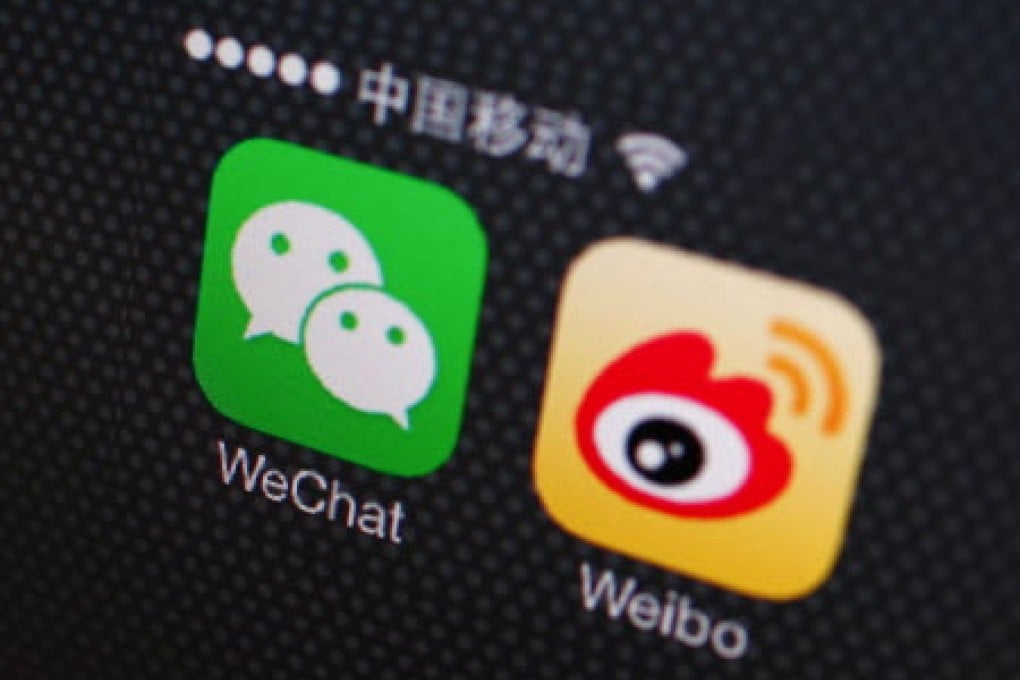Is social media becoming a new censorship battleground on the mainland?
Rights activists are concerned over phone apps being the next government targets, yet some experts say they're already monitored and blocked

As mobile phones become the most widely used devices for internet access across the mainland, rights activists have expressed concerns that online censorship may spill over onto mobile web applications.
More than 83 per cent of the 630 million Chinese internet users access the web through their phones, surpassing the number of personal computer users for the first time, according to the latest report by the China Internet Network Information Centre (CNNIC).
Published yesterday, the half-yearly internet report said instant-messaging apps such as WeChat are the most popular among all the mobile web apps, reaching a user base of close to 460 million, but Weibo and other social networking sites have been losing users since last year.
Many believe that mobile instant-messaging services provide better privacy and cause less trouble from censorship compared with social media websites like Weibo. However, activists warned that as these instant messengers gain in popularity, the threat of being censored also increases.
“Many rights activists’ accounts [on WeChat] have been deactivated, including mine, which has been blocked since the end of May,” said Teng Biao, a human rights lawyer and activist. He said other forms of censorship include banning uploading on Moments, a feature of WeChat that allows status and photo sharing among friends.
Teng also recalled that a number of influential WeChat public accounts, which can send group messages to followers, suddenly disappeared a few months ago.